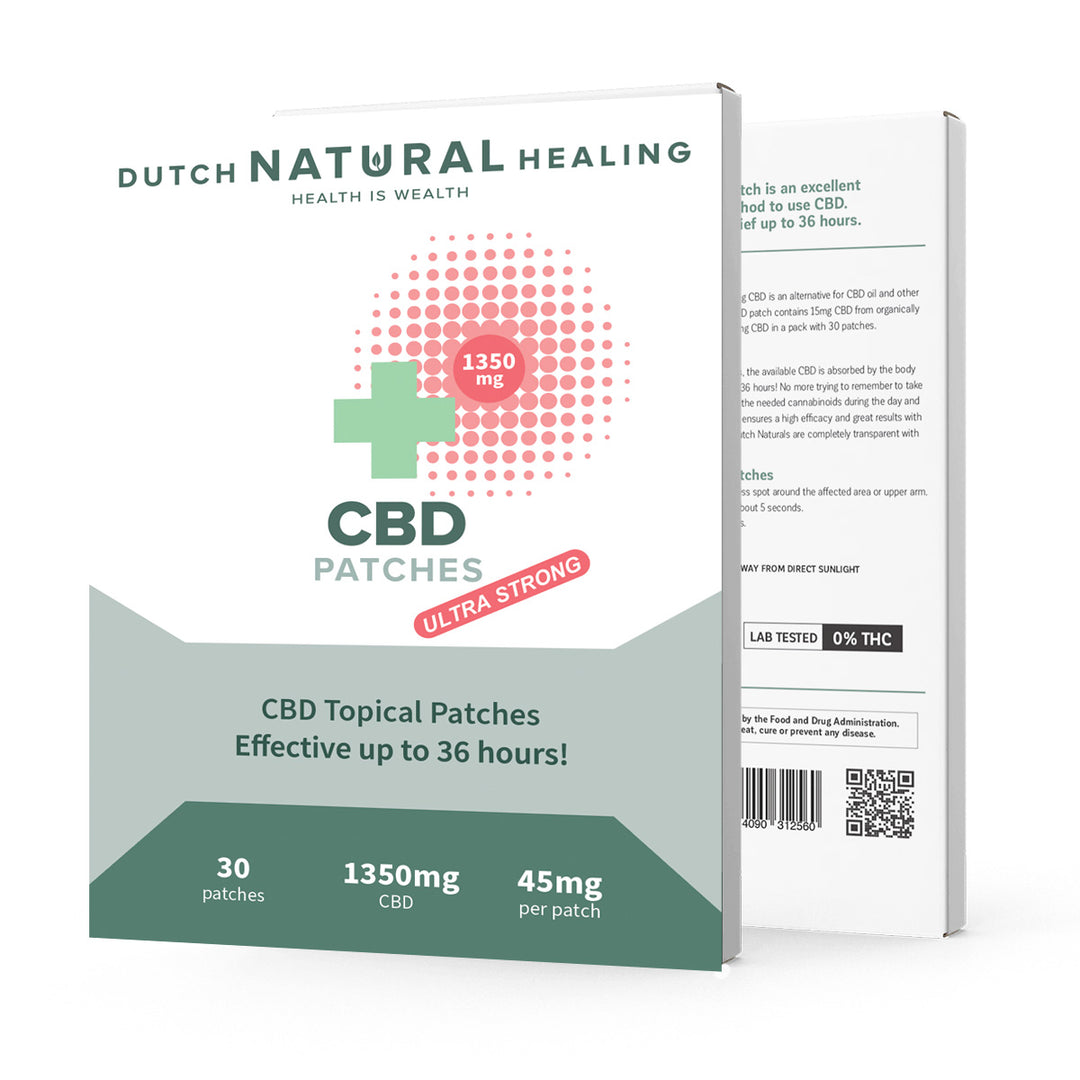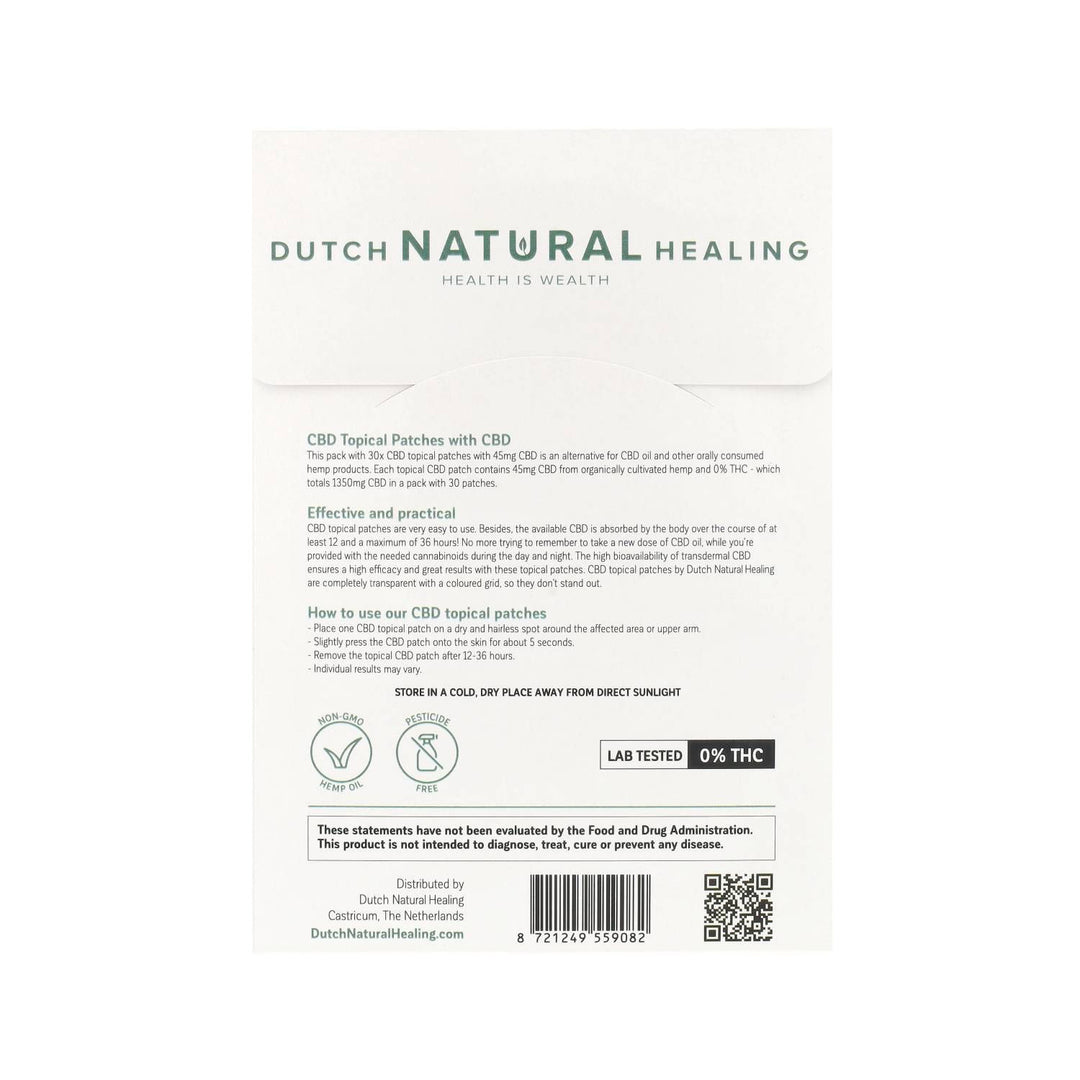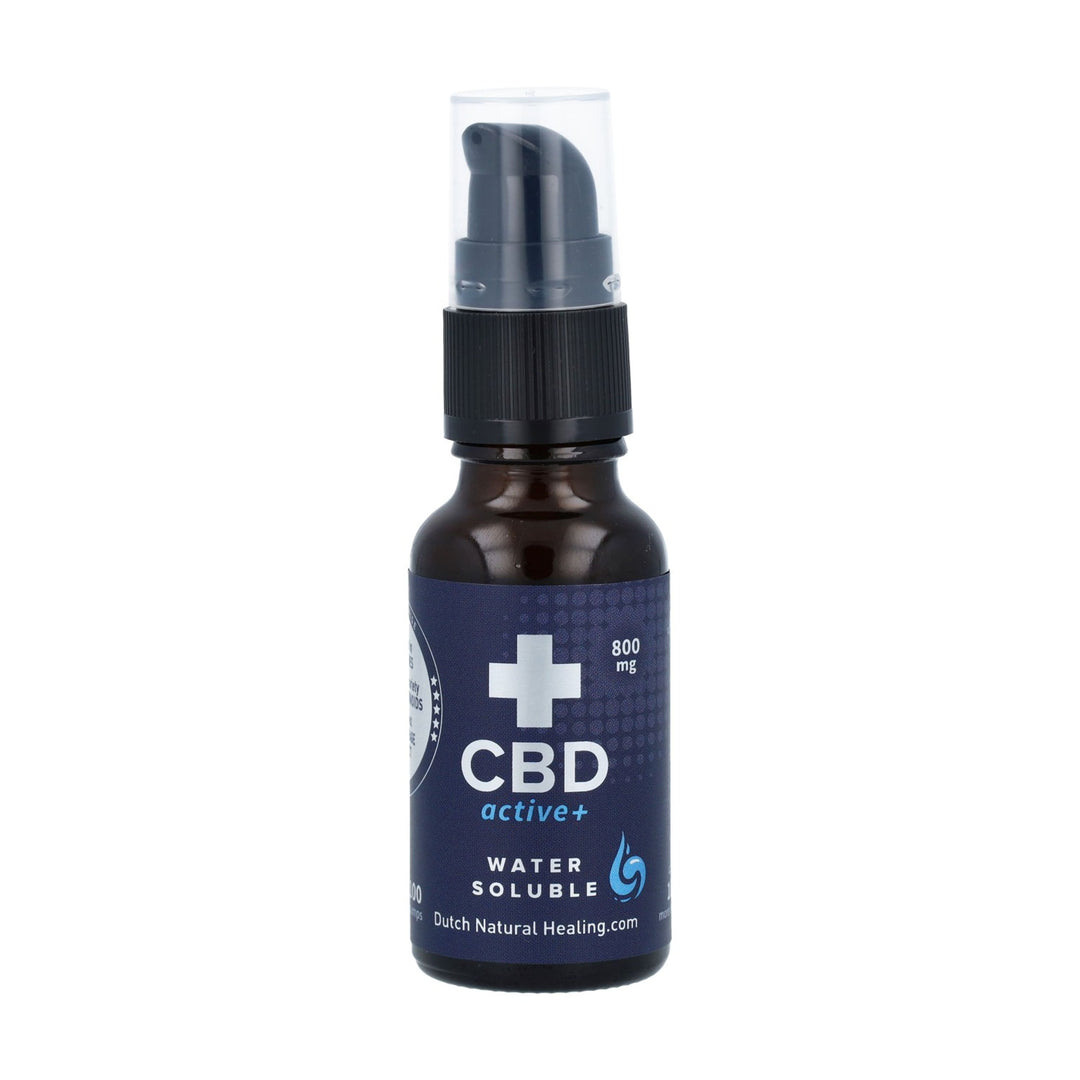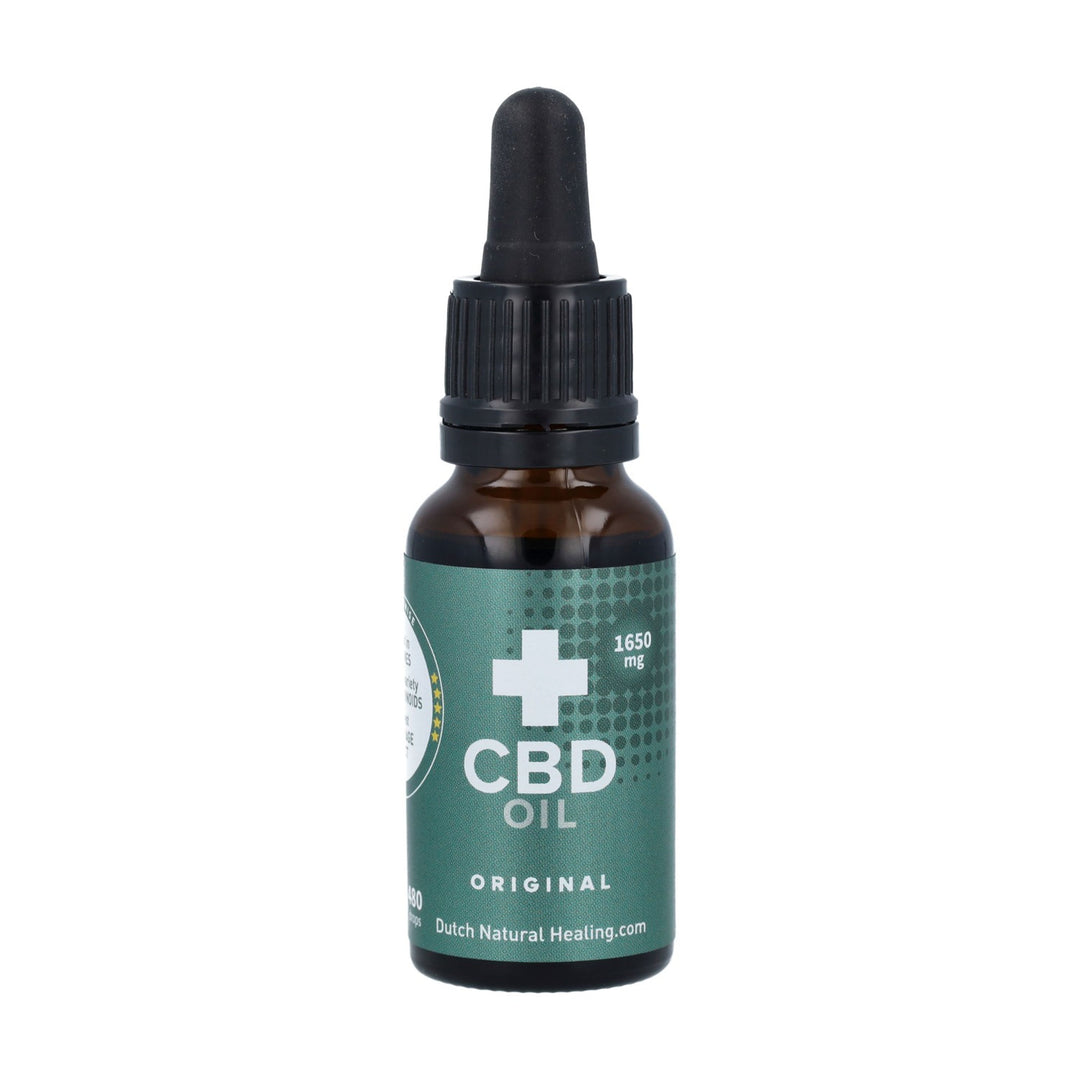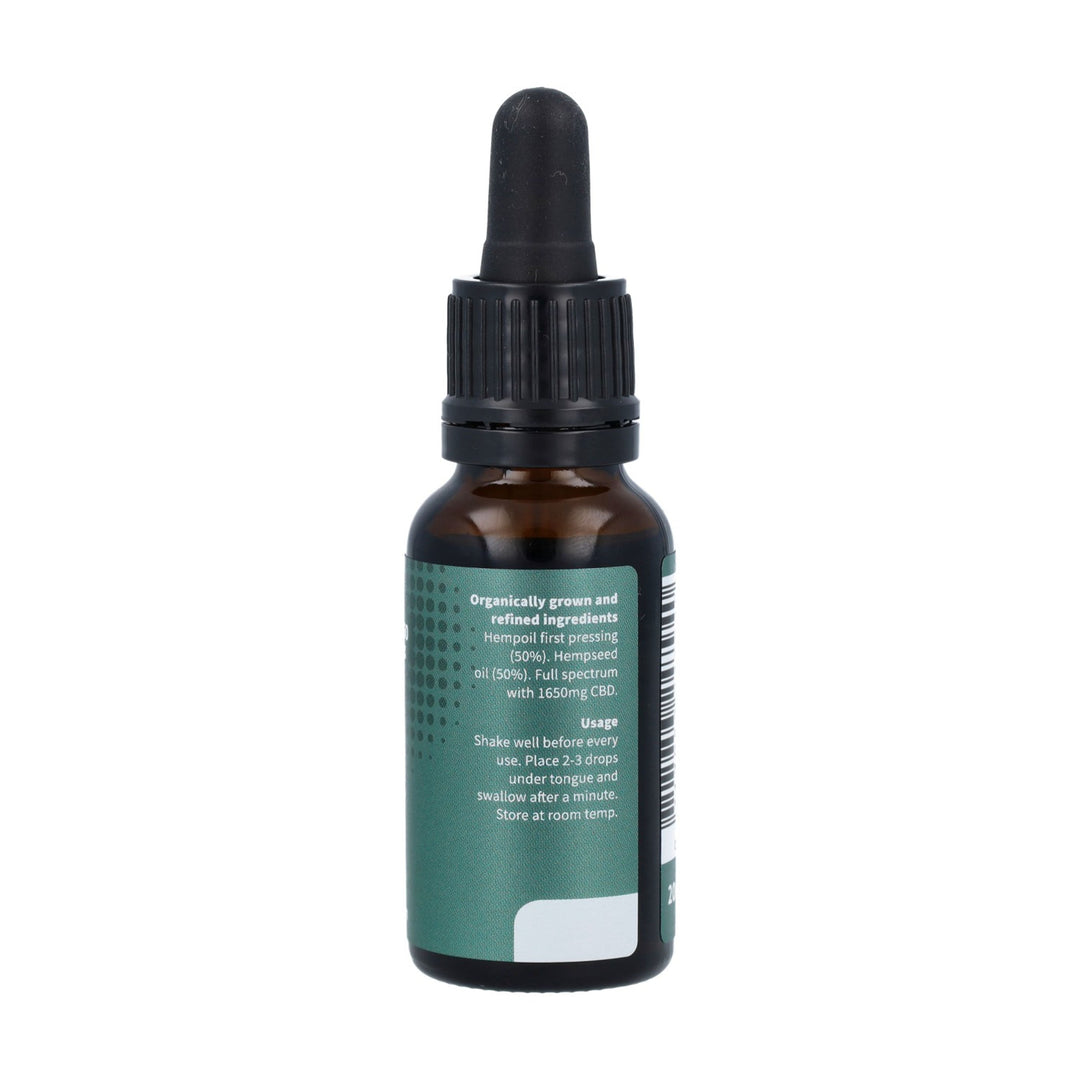CBD comes in many different forms and there is a wide range of products available. Understanding the main types – full-spectrum CBD, broad-spectrum CBD, CBD isolate, and whole plant CBD – is key to finding the right CBD product for your specific needs.
With so much choice, even seasoned CBD users can get confused by the amount of information and terminology out there. To simplify the process, we’ve put together this guide to help you understand the different types of CBD products on the market.
Take a look at our CBD oil – one of the most popular ways people choose to take their CBD.
What is CBD?
CBD, also known as cannabidiol, is a chemical compound found in the hemp plant. Once extracted, it can be added to various products such as oils, edibles, and creams. CBD is thought to enhance well-being which is one of the key drivers in its popularity.
These beneficial effects are believed to have come about because of how CBD interacts with the body’s endocannabinoid system (ECS), which includes the brain and spinal cord. The ECS plays a part in the functioning of numerous physiological processes like appetite, immune response and mood regulation.
Many people who use CBD report feeling calmer and enjoying higher-quality sleep, among other results. However, its effects are still being researched in order to fully understand the science behind this anecdotal evidence.
Some CBD products contain low levels of delta-9-tetrahydrocannabinol, more commonly known as THC. This is another compound found in hemp, and it’s known to cause psychoactive effects. But you don’t need to worry about getting ‘high’ from CBD. To be sold legally in the US, CBD products must not contain more than 0.3% THC, which is nowhere near enough to induce a psychoactive response.
The benefits of CBD
CBD can help to alleviate the unpleasant symptoms of many different illnesses and disorders. It is also thought to boost overall feelings of wellness in otherwise healthy people.
Some of the ways in which CBD can support our bodies include:
- Neurological support
- Better sleep
- Immune function
- Digestion
- Skin health
- Heart health
- Exercise recovery
From diabetes to addiction, CBD shows promise as a potential treatment aid for multiple conditions. Learn more about the conditions and symptoms that CBD can help with in our beginner’s guide to CBD.
What are the types of CBD?
CBD generally comes in four main types, each with its own benefits.
Full-Spectrum CBD
Full-spectrum CBD contains all of the favorable compounds found in hemp – i.e., the ‘full spectrum’. These compounds include CBD and other cannabinoids, flavonoids, terpenes, and small amounts of THC.
The theory behind full-spectrum CBD is that as these compounds naturally occur together in the hemp plant, they work better when consumed together. They have many similar, complementary properties – for example, the calming effect of terpenes (the fragrant oils found in plants) can amplify the calming effects of CBD.
The synergistic relationship between these compounds produces what’s known as the ‘entourage effect’. The entourage effect refers to the increase in therapeutic benefits of full-spectrum CBD when compared to CBD isolate.
Broad-spectrum CBD
Broad-spectrum CBD is basically the same as full-spectrum CBD but with all or most of the THC removed. Depending on the extraction process, minuscule amounts of THC might remain. It is, therefore, safest to consider broad-spectrum CBD as ‘nearly THC-free’.
The remaining compounds are left intact, offering a similar entourage effect to that found in full-spectrum CBD. Broad-spectrum CBD is a great option for people who want a potent product but are extra cautious regarding THC.
CBD isolate
CBD isolate contains no compounds other than cannabidiol, which is why it’s often called pure CBD. During extraction, the CBD is isolated from the terpenes, flavonoids, and all other compounds. This means the entourage effect is not present, but CBD isolate has many alternative benefits.
Some people are sensitive or even allergic to one or more of the compounds found in hemp. CBD isolate makes it possible for them to enjoy the effects of CBD without a bad reaction. The same goes for those who simply prefer to only put pure CBD into their body.
Another advantage of CBD isolate is its versatility. Thanks to its simple chemical structure, it’s a lot easier to incorporate into tinctures, oils, topical treatments, and edibles.
Whole-plant CBD
Whole-plant CBD is also similar to full-spectrum CBD but contains compounds found across the entire hemp plant, including the flowers, leaves, and stems. It’s less widely available than the other three types, with criticisms being that it’s not refined enough for regular use.
Whole-plant CBD might contain more THC than some of the other types, so always check the label carefully before purchasing any products.
How to consume CBD
One of the best things about CBD is that it can be consumed in multiple different ways, so most people will be able to find a method that works for them.
Some of the most common ways to consume CBD are:
- Oral ingestion – capsules, food, or drinks that are easy to take
- Sublingually – oils and tinctures can be placed under the tongue for quick absorption into the bloodstream
- Inhalation – via vaping or a CBD nebulizer
- Topical application – applying creams or ointments to a targeted area.
CBD product types
Hemp CO2 extract
Pressurized carbon dioxide (CO2) can be used to extract CBD from hemp. The same technique is used in the food industry to produce ingredients like vanilla extract.
During the process, selected compounds are extracted while all others are left behind. This makes CO2 extraction a popular choice for full-spectrum CBD as it allows for the natural profile of the plant (including all terpenes and flavonoids) to be preserved.
The final product is free from fats, sugars, leaf green, and other undesirable substances. It’s approximately 1/3 wax, giving it a paste-like structure. CBD paste is often sold in syringes to make accurate dosing easier.
The pros of hemp CO2 extract
- Cleaner – low toxicity and biodegradability
- Healthier – no harsh chemicals or solvent residue
- Efficient – the extraction process has a high yield
The potential drawbacks of hemp CO2 extract
- Low bioavailability – the body will only be able to absorb around 6-12% of CO2 extracted CBD
- Inconsistent – the amount of CBD present can vary depending on the plant used and the extractor’s knowledge
Oils and tinctures
CBD oils and tinctures are probably the most popular types of CBD products used worldwide, being versatile to both use and make. They tend to come in a dark bottle to help preserve the shelf life and are distributed using an inbuilt dropper tool.
Made with a CO2 extract
Most types of CBD oil on the market have been made from a CO2 extract and diluted with carrier oil (e.g. olive oil or coconut oil).
The pros of CBD oil made with a CO2 extract
- Cleaner and healthier
- Convenient to use
- Versatile – can be added to other products
The potential drawbacks of CBD oil made with a CO2 extract
- Low bioavailability
- Choice of carrier oil can reduce product shelf life
- Might clump together or solidify
- Might require heating up before consumption
Made with crystals
CBD oil can also be made from isolated CBD crystals, which are one of the purest types of CBD. Crystals can be either synthetic or natural, with very few differences between the two.
Natural CBD crystals are made through a process of isolation and purification that results in a solid crystalline substance. CBD produced in this way will generally be very high quality.
As synthetic CBD is made by mimicking the hemp plant’s biological synthesis, it’s technically the same substance as natural CBD. However, the production process can create additional compounds which might prove harmful.
The pros of CBD oil made with crystals
- High quality – made from one of the purest forms of CBD
- Versatile – can be added to foods or used in skincare formulations
The potential drawbacks of CBD oil made with crystals
- Can be difficult to distinguish between natural and synthetic CBD crystals
- Isolated CBD means no ‘entourage effect’
Liposomal CBD oil based on lecithin
Liposomes are sometimes added to food and other products as a way of controlling the delivery of certain particles into the body. They are tiny spheres that encompass the particles, essentially disguising their true form.
It’s increasingly popular for liposomal CBD oils to be made using lecithin -, an emulsifying agent found in eggs, soy, and sunflower seeds. Lecithin plays a role in the making of mayonnaise, helping to bind the eggs to the oil.
This ability to bind fats with water is what makes lecithin appeal to CBD manufacturers. The idea is that CBD can be made water-soluble by enclosing the raw particles of CBD oil in a lecithin liposome. The benefit of this is that the CBD should then be more easily absorbed by the body. However, there’s an argument to be made that the opposite is true. Lecithin’s binding power is stronger than that of the body’s own lipoprotein and therefore might disrupt the absorption process.
The pros of lecithin-based liposomal CBD oil
- Versatile – it’s a water-soluble oil
- Potential to improve bioavailability
The potential drawbacks of lecithin-based liposomal CBD oil
- Potential to worsen the absorption of CBD
- Binding lecithin to cannabinoids is a difficult process
Water-soluble CBD
Water-soluble CBD is one of the latest breakthroughs in the world of CBD. The problem with traditional CBD oils is that they have naturally low compatibility with the human body, due to being oil-based while the body is water-based. Water-soluble CBD gets around this problem.
There are a few different ways to make this type of CBD, which you can read all about in our . One of the most common methods is to use nanoemulsion, where the CBD molecules are broken down into smaller particles that can interact more effectively with water.
Once in a water-soluble form, CBD can be absorbed faster and in greater quantities into the bloodstream. It can also be mixed more easily with other liquids.
The pros of water-soluble CBD
- High bioavailability (which also means a lower dosage is required)
- Large range of products available
- Easily added to your favorite beverages
The potential drawbacks of water-soluble CBD
- Can be more expensive
- No ‘entourage effect’
CBD gummies
CBD gummies are small, chewy sweets that have been infused with CBD. They’re a convenient way of taking CBD and come in a variety of flavors, colors, and shapes.
The pros of CBD gummies
- Wide range of flavors
- Can disguise the taste of CBD
- Can be taken discreetly
The potential drawbacks of CBD gummies
- May contain additives
- May contain sugar
- Quality and potency can vary greatly
CBD water
CBD can be added to still or sparkling water to create a calming and refreshing drink, with flavorings often added too. You can make CBD water yourself at home or buy ready-made.
The pros of CBD water
- Variety of flavors and products
- Can disguise the taste of CBD
- Can be a good alternative to alcohol
The potential drawbacks of CBD water
- Sometimes contains very little CBD
- Can take time to feel the effects
- Potential for inaccurate dosing (e.g. if only half the drink is consumed or it’s drunk over too long a timeframe)
CBD capsules
CBD capsules can be made from either oil or water-soluble CBD, impacting their absorption rate and impact time (water-soluble CBD is almost always faster acting). Extra ingredients are sometimes added to the capsules to enhance the benefits.
To use, you simply swallow the capsules and wait for them to go through your digestive system. After an hour or two, you should begin to feel the positive effects.
The pros of CBD capsules
- Clear, accurate dosing
- Small enough to take on-the-go
- Experimenting with different dosages is simple
The potential drawbacks of CBD capsules
- Incremental doses not possible – can only take one or two capsules, nothing in between
- May contain additives
- Time taken to digest
CBD cookies and cakes
CBD cookies, cakes, and other baked goods can be made using either CBD oil or a water-soluble formula. The CBD is simply added to the mixture before baking or incorporated into the icing and decorations.
The pros of CBD cookies and cakes
- Enjoyable to consume
- A more sociable way to take CBD
- Can disguise the taste of CBD
The potential drawbacks of CBD cookies and cakes
- Hard to measure doses
- Can contain high amounts of fat and sugar
- Time taken to digest
Topical creams and lotions
CBD products that are applied to the surface of the skin are known as CBD topicals. These allow the therapeutic benefits of CBD to be targeted at a specific area.
CBD topicals can come in the form of cosmetics, lotions, balms, soaps, and much more. They’re popular with athletes, who often use topical CBD rubs to help reduce pain and inflammation.
The pros of CBD topicals
- Can target a specific area
- Can help with pain relief
The potential drawbacks of CBD topicals
- Limited effects – CBD doesn’t enter the bloodstream
- Easy to incorporate into a routine
- Some people might experience skin irritation
CBD patches
CBD patches, much like nicotine patches, are applied directly to the skin and are designed to slowly release their contents over the course of a few hours or days. This transdermal method of delivery ensures that some CBD reaches the bloodstream, while also allowing for localized pain relief.
The pros of CBD patches
- Targeted release
- Steady, consistent dose
- Don’t need to remember to ingest anything
The potential drawbacks of CBD patches
- Only small amounts of CBD reach the bloodstream
- Potency can vary widely
CBD vapes
CBD oil can be consumed through inhalation if heated to the right temperature. This is known as CBD vaping, and it requires the oil to be vaporized so that the CBD can be inhaled into the lungs. Vape devices, sometimes called vape pens, are compact and usually available with prefilled or refillable cartridges.
The pros of CBD vapes
- Rapid absorption
- Near immediate effects
- Convenience
The potential drawbacks of CBD vapes
- Difficult to dose accurately
- Wears off quickly
- Potential health risks
So, which CBD product is right for you?
Now that you have all the information you need, it’s time to choose which CBD product is right for you. A good place to start is to decide whether you’re interested in the entourage effect offered by full-spectrum and broad-spectrum CBD, or if you would rather stick to the purer form of CBD isolate.
If you’re concerned about consuming additional compounds or you just want to see what effect CBD has on its own, you might be best trying CBD isolate. But if you want a more natural product with a wider range of potential benefits, full-spectrum CBD could be the one to go for.
When it comes to the method of consumption, the product that you choose really depends on your individual preferences. The most efficient is water-soluble CBD, which is available in many different forms including gummies, capsules, and powders. However, lots of people prefer CBD vapes due to their convenience and the social aspect.
If you’re not a fan of the taste of CBD, then CBD drinks or edibles with added flavoring might appeal. And those looking for pain relief in a specific area are best starting with topical ointments or a CBD patch.
FAQs about the different types of CBD products
Which form of CBD is most effective?
There hasn’t currently been enough research conducted to confirm that one form of CBD is more effective than the others. The most likely answer is that the efficacy of any CBD product depends on the individual’s needs and unique biological makeup.
However, some people argue that the entourage effect produced by full-spectrum CBD makes it a more effective choice than CBD isolate. We recommend experimenting with different types of CBD to see what works for you.
Is CBD addictive?
No, there is no evidence to suggest that CBD alone is addictive. In fact, various studies indicate that CBD has promise as a treatment aid for other forms of addiction, such as alcoholism and tobacco dependence.
Is CBD safe?
Generally speaking, CBD is very safe. A report carried out by the World Health Organization (WHO) states that ‘there is no evidence of recreational use of CBD or any public health-related problems associated with the use of pure CBD’.
However, not every way that CBD interacts with the body has been studied. This means it’s not certain that CBD has no adverse effects, despite endless anecdotal evidence suggesting that’s the case.
There’s also the possibility of other, harmful chemicals being present in the products you purchase. For this reason, buying from trusted and reputable sellers is paramount. You should also always speak to your doctor before introducing CBD into your routine.
Will CBD make me tired?
CBD tends to work where it’s needed so if you are suffering from a sleep disorder, it’s possible that CBD will help you to feel tired. Preliminary clinical trials support this, suggesting that CBD has therapeutic benefits for patients suffering from insomnia.
How to shop for CBD
There are a few important rules to follow when shopping for CBD products. First of all, you should always carry out research to make sure you fully understand what it is you’re putting into your body, and why.
Reading customer reviews and investigating different brands’ reputations will help you to find a reliable, high-quality seller. This should lessen the likelihood of being disappointed by the products you receive – as will researching the product’s clinical studies beforehand.
Read more about "Everything you need to know about water-soluble CBD"





